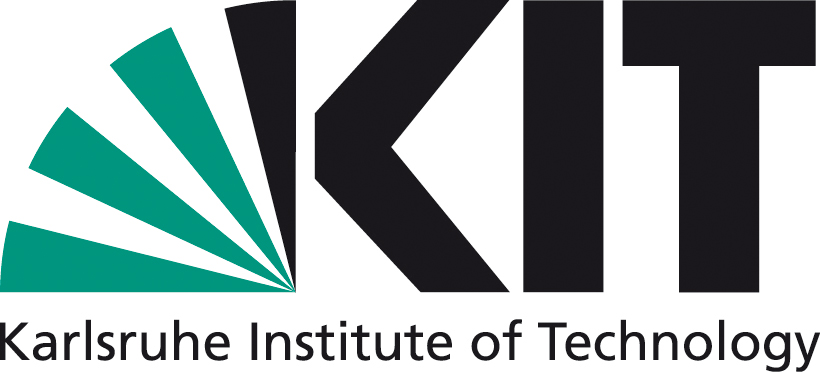Energy efficiency as interplay between technical installations and social actors
Barriers to the efficient operation of complex heating systems
DOI:
https://doi.org/10.14512/tatup.28.3.55Keywords:
energy efficiency, socio-technical system, heating technologyAbstract
In order to achieve climate protection targets, energy-efficient operation of heating systems is of central importance to achieving climate protection targets. So far, innovation of the energy system has primarily been attributed to technological innovation. Therefore, modern energy systems have been installed in many buildings over the last two decades. However, in practice, predicted savings are usually not achieved. The empirical results of the ENGITO project show that this is often due to social barriers, which have hardly been considered so far. The article addresses typical barriers to efficient operation of heating systems and shows that work organization and distribution of responsibility play an important role in shaping future energy systems. In this article, energy efficiency is viewed from a socio-technical perspective and understood as interplay between technological installations and social actors.References
Akrich, Madeleine (1997): The Description of technical objects. In: Wiebke Bijker und John Law (Hg.): Shaping technology/building society. Studies in sociotechnical change. Cambridge, MA: MIT Press, S. 205–224.
Axon, Colin; Bright, Susan; Dixon, Tim; Janda, Katy; Kolokotroni, Maria (2012): Building communities. Reducing energy use in tenanted commercial property. In: Building Research & Information 40 (4), S. 461–472. DOI: https://doi.org/10.1080/09613218.2012.680701
BBSR – Bundesinstitut für Bau-, Stadt- und Raumforschung (2019): Berücksichtigung des Nutzerverhaltens bei energetischen Verbesserungen. Online verfügbar unter https://www.bbsr.bund.de/BBSR/DE/Veroeffentlichungen/BBSROnline/2019/bbsr-online-04-2019-dl.pdf;jsessionid=3C4D2C203CA45830A29D2CBFAFED13B9.live11294?__blob=publicationFile&v=2.pdf, zuletzt geprüft am 04. 10. 2019.
Böhm, Uta; Buchin, Oliver (2019): Auswirkungen von organisationsbezogenen Rahmenbedingungen auf die Effizienz von Heizungs- und Kälteanlagen. In: InfrastrukturRecht 1, S. 2–4.
BMU – Bundesministerium für Umwelt, Naturschutz und nukleare Sicherheit (2016): Klimaschutzplan 2050. Klimaschutzpolitische Grundsätze und Ziele der Bundesregierung. Frankfurt am Main: Zarbock. Online verfügbar unter www.bmu.de/fileadmin/Daten_BMU/Download_PDF/Klimaschutz/klimaschutzplan_2050_bf.pdf, zuletzt geprüft am 21. 05. 2019.
BMWi – Bundesministerium für Wirtschaft und Energie (2018a): Energieeffizienz in Zahlen 2018. Frankfurt am Main: Zarbock. Online verfügbar unter www.bmwi.de/Redaktion/DE/Publikationen/Energie/energieeffizienz-in-zahlen-2018.pdf?__blob=publicationFile&v=12, zuletzt geprüft am 21. 05. 2019.
BMWi (2018b): Innovationen für die Energiewende. 7. Energieforschungsprogramm der Bundesregierung. Frankfurt am Main: Zarbock. Online verfügbar unter www.bmwi.de/Redaktion/DE/Publikationen/Energie/7-energieforschungsprogramm-der-bundesregierung.pdf?__blob=publicationFile&v=11, zuletzt geprüft am 21. 05. 2019.
dena – Deutsche Energie-Agentur GmbH (Hg.) (2017): Büroimmobilien. Energetischer Zustand und Anreize zur Steigerung der Energieeffizienz. Online verfügbar unter https://www.dena.de/fileadmin/dena/Dokumente/Pdf/9196_Bueroimmobilien_Energetischer_Zustand_Anreize_Steigerung_Energieeffizienz.pdf, zuletzt geprüft am 09. 10. 2019.
Janda, Kathryn (2014): Building communities and social potential. Between and beyond organizations and individuals in commercial properties. In: Energy Policy 67, S. 48–55. DOI: https://doi.org/10.1016/j.enpol.2013.08.058
Pettersen, Ida; Verhulst, Elli; Valle Kinloch, Roberto; Junghans, Antje; Berker, Thomas (2017): Ambitions at work. Professional practices and the energy performance of non-residential buildings in Norway. In: Energy Research & Social Science 32, S. 112–120. DOI: https://doi.org/10.1016/j.erss.2017.02.013
Rammert, Werner (2016): Technik – Handeln – Wissen. Zu einer pragmatistischen Technik- und Sozialtheorie. Wiesbaden: Springer VS. DOI: https://doi.org/10.1007/978-3-658-11773-3
Ropohl, Günter (2009): Allgemeine Technologie. Eine Systemtheorie der Technik. Karlsruhe: KIT Scientific Publishing. DOI: https://doi.org/10.26530/OAPEN_422388
Shove, Elizabeth (2017): What is wrong with energy efficiency? In: Building Research & Information 46 (7), S. 779–789. DOI: https://doi.org/10.1080/09613218.2017.1361746
Star, Susan (1999): The ethnography of infrastructure. In: American Behavioral Scientist 43 (3), S. 377–391. DOI: https://doi.org/10.1177/00027649921955326
Forschungsdaten und -projekte
c.HANGE (2019): Handwerker gestalten die Energiewende. Online verfügbar unter https://www.ifeu.de/projekt/c-hange, zuletzt geprüft am 04. 10. 2019.
DACH – Energieeffiziente Stadt (2019): DACH. Eine Kooperation energieeffizienter Städte. Online verfügbar unter https://www.dach-energieeffiziente-stadt.eu/index.php, zuletzt geprüft am 04. 10. 2019.
ENGITO (2019): Energieeinsparung durch gering-investive technische und organisatorische Maßnahmen in komplexen Wärme- und Kälteanlagen. Online verfügbar unter https://www.tu-berlin.de/ztg/menue/projekte_und_kompetenzen/projekte_laufend/engito_energieeinsparung_durch_gering_investive_technische_und_organisatorische_massnahmen_in_komplexen_waerme_und_kaelteanlagen/, zuletzt geprüft am 08. 10. 2019.
ENOB: dataNWG (2019): Forschungsdatenbank Nichtwohngebäude. Online verfügbar unter https://www.datanwg.de/home/aktuelles, zuletzt geprüft am 04. 10. 2019.
fifty/fifty (2018): Energiesparen an Schulen. Online verfügbar unter https://www.fifty-fifty.eu, zuletzt geprüft am 04. 10. 2019.
LowEx Bestand (2018): LowEx-Konzepte für die Wärmeversorgung von Mehrfamilien-Bestandsgebäuden. Online verfügbar unter http://www.lowex-bestand.de/?lang=de, zuletzt geprüft am 04. 10. 2019.
UfU – Unabhängiges Institut für Umweltfragen e. V. (2017): Passivhausschulen werden aktiv. Online verfügbar unter https://www.ufu.de/projekt/passivhausschulen, zuletzt geprüft am 04. 10. 2019.
Downloads
Published
How to Cite
Issue
Section
License
Copyright (c) 2019 Uta Böhm, Martina Schäfer and Maria Stadler

This work is licensed under a Creative Commons Attribution 4.0 International License.








